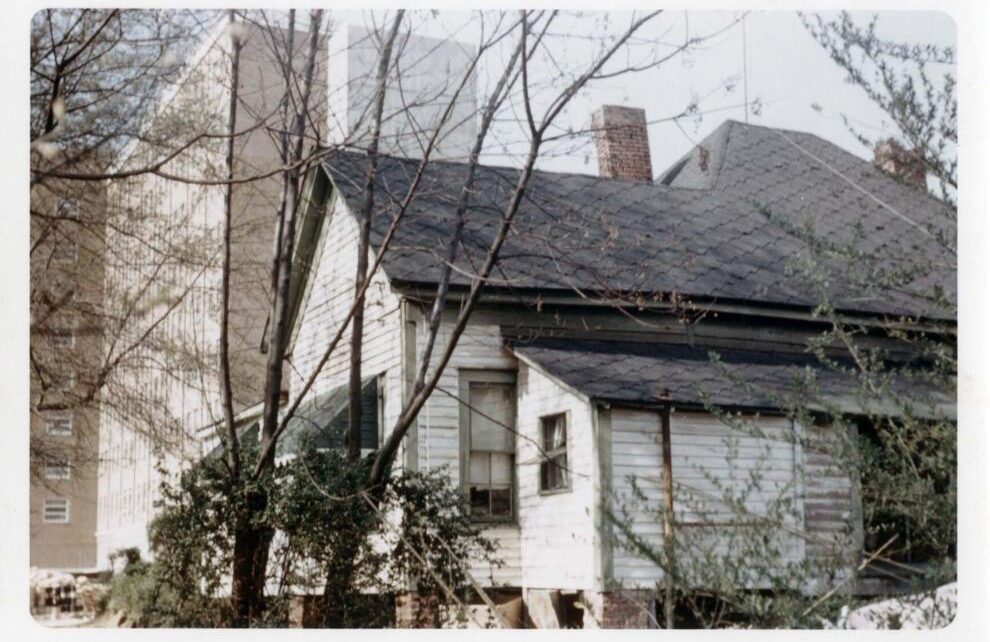Linnentown, Georgia destroyed a Black neighborhood. Now former residents want justice.
Many who lived in Linnentown are urging leaders in Athens to pay for destroying their community more than 50 years ago to make way for the University of Georgia.
Hattie Thomas Whitehead has fond memories of her childhood in Linnentown, a 22-acre neighborhood in North Georgia.
Born in 1948, Whitehead was among the fourth generation of families living in the all-Black neighborhood off Baxter and Church streets in Athens where a majority of the families owned homes.
“We were happy children,” Whitehead said. “It was a close-knit community in the Deep South before integration. We had a play area that the teenagers built for us. We had family Easter egg hunts. We had community baseball games. We played all over the community. Until urban renewal hit.”
Linnentown, once a thriving, self-sustained Black neighborhood full of plumbers, electricians, construction workers, beauticians and more, was destroyed in the 1960s to make way for the University of Georgia, according to Athens-Clarke County documents. Linnentown, like hundreds of other neighborhoods and cities across the country, fell victim to the Housing Act of 1949, a decadeslong federal urban renewal program that the government funded to raze “blighted” neighborhoods and build public housing or private commercial properties in their place.
Soon, the project was extended to building colleges and universities, according to the county documents. The city of Athens used eminent domain to force 50 Black families out of Linnentown on behalf of the university. The documents say the University System of Georgia acquired an urban renewal contract with the city to “clear out the total slum area which now exists off Baxter Street.” On the acquired land, the university built dorms and parking lots. The residents of Linnentown were given as little as $1,450 — about $12,000 today — for their seized properties, according to the county documents.
More than 50 years later, Whitehead and a group of fellow former residents and descendants of residents created the Linnentown Project to memorialize the lost community and urge the city to recognize and provide redress for the loss. The group was formed in 2019; by this year, Athens Mayor Kelly Girtz and the Clarke County Commission had approved a resolution in support of the effort.
However, members of the group have said that while the county is willing to make amends, University of Georgia officials have been dragging their feet.
“We’ve had some resistance. UGA has not acknowledged us as a team,” Whitehead said. “We asked to put a wall of recognition down where Linnentown was. … They would not allow us to put it on their property. They are not at the table with us. I have written letters to President [Jere] Morehead. Initially they were completely silent, then they replied but with nothing that would bring them to the table. They have continued to ignore the team.”
Whitehead said the group has even requested to change the name of the school’s Russell residence hall to Linnentown Hall.
Under the resolution, the county has vowed to acknowledge the harmful injustice by the city and the university; work with the university system to build a physical “Wall of Recognition” memorial; allocate city funds to local impoverished communities; work with the university to create a center on slavery, Jim Crow and the future of Athens’ Black communities; regulate property acquisition between the county and the university system; and urge the General Assembly to establish an authority to recognize and provide redress for systemic racism in Georgia.
Jeff Montgomery, a spokesman for the Athens-Clarke County Unified Government, said the Wall of Recognition would be erected on county property, not university property. He said that university officials have not, to his knowledge, been involved in the county’s redress efforts but that the county “would definitely be open to having a partnership with them on this process.”
In February, Girtz apologized on behalf of the county to Athenians displaced by urban renewal projects.
“I think it’s important to recognize that apology is a strength,” Girtz said at the urban renewal proclamation ceremony. “It’s a strength of recognition. It’s a strength that as we atone for those things that we would not do today, we learn to walk a better path.”
Now, Whitehead said, the group has focused on working with county commissioners and city officials to implement the resolution’s demands. But some of the Linnentown Project group members say it is not enough.
Whitehead has said she wants the university to work with the group to redress the displacement. Bobby Crook, another group member, said the university should do more.
“We want money,” Crook told the Atlanta Journal-Constitution. “As a child growing up, Linnentown was always a social place. I remember coming home from school and everybody was crying and carrying on about UGA taking our house.”










